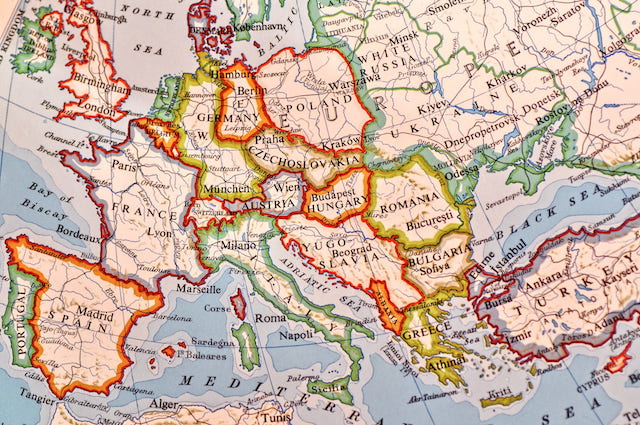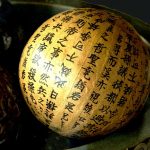Everyone has at least one mother tongue language. The word tongue is used in a language context to mean language, and therefore mother tongue just means mother language. This is also known as your native language or your first language, and it is the first language that you learn as a child, from your parents.
It is important to know that your mother tongue does not necessarily have to be the language that your mother speaks. This makes sense when you consider that not all children grow up with their mothers, and yet they still all have mother tongues.
Strictly speaking, your mother tongue refers to the language that your mother speaks, and in some cases, your mother’s language and the language you grow up learning (your first language) may be different. Usually, though, your mother tongue is assumed to be the language that you learnt from your parents.
Although not everybody learns a second language, everybody learns a first language. It doesn’t matter what language the young person is learning, they will be able to achieve fluency. Although this fluency takes several years, with a lot of trial and error, and correction by family and teachers, it is always achieved.
This can be quite encouraging, as it means that anyone learning a second language can be sure to also achieve fluency if they are able to put in the time.

Why Is Our First Language Called Our Mother Tongue Language?
If we have mother tongues, what about father tongues? Is that something else or is it simply something that doesn’t exist? There are two common explanations as to why your first language is called our mother tongue, even if it is the language that is learnt from your father.
The origins of the term ‘mother tongue’ are from the Catholic Church when priests wanted to differentiate between Latin and the language they were speaking when they were preaching. This was a reference to the Church, which always uses a female gender rather than a male gender.
Another possibility as to why the mother tongue is used is that traditionally mothers would stay at home, do the housework and raise children. This, and the fact that it is your mother that gave birth, implies a closer connection between you and your mother, meaning that the language you grew up learning is more commonly associated with the language your mother speaks.

Can I Have More Than One Mother Tongue Language?
Yes! You can have more than one mother tongue because your mother tongue is simply the language you learned as a child. An example of this is if your mother and father speak different languages to you, and you grow up learning both languages and become fluent in them both.
There is a technical difference between your mother tongue (first language/s) learned as a child and your native language. Your mother tongue is the language you learned as a child, while your native language is the main language spoken in the area you live. For example, if you moved countries as a young child and learned English as a child while living in France, English would be your mother tongue but French would be your native language. In reality, these differences aren’t really discussed, and mother tongue and native languages are used quite interchangeably.
There is a technical difference between your mother tongue (first language(s) learnt as a child) and your native language. Your mother tongue is the language you learnt as a child, while your native language is the main language spoken in the area you live. For example, if you moved countries as a young child and learnt English as a child while living in France, English would be your mother tongue, but French would be your native language.
Can I Have More Than One Native Language?
Having two mother tongues is also known as being bilingual. Children who grow up learning two languages at the same time are known to have two mother tongue languages. In these cases, these children are also known to have two first languages, because both of these languages were learnt at the same time and one didn’t come after the other.

What Is The Importance Of My Mother Tongue Language?
You may wonder what the importance of your mother tongue language is, and if there is any benefit to keeping it, particularly if there is a more dominant language in the area where you’re living. There are a few examples of groups of people who have lost their mother tongue language, as a result, lost part of their identity.
It’s all well and good being able to speak the dominant language of the area, for example at the shop, or maybe even in school, when you’re at home or speaking with elderly family or friends, your mother tongue will probably be the language they speak. This can create a divide between families, where the older generation does not speak the main regional language and can only speak the mother tongue language that the younger generation either does not speak at all order is not speak very much.
Any kind of passing down of family knowledge, stories of older family members, or even folktales associated with the mother tongue language may no longer be passed down because of this break in language continuity. If this process is repeated for even one or two generations, suddenly the mother tongue language may be lost completely in this area. If this is the only area where that language exists in the world, it may be on the brink of extinction.
This is an aspect of language that many take for granted, particularly if English is your mother tongue. Your identity is at least in part associated with speaking English, but it is hard to imagine how you would feel if the ability to speak English was taken away from either yourself or young people in your community. This type of loss can result in identity issues, which is why maintaining minority languages is so important.

How Many Mother Tongue Languages Are There?
As described earlier, your mother tongue is usually meant to be the language that you learnt from your parents. Therefore, there are as many mother tongue languages in the world as there are languages. According to Ethnologue, there are currently 7,151 languages in the world.
Some languages may only be known by very few people and may not be taught to their children, for reasons such as another language being the more dominant language and more commonly spoken at home. This means there are probably slightly less than 7,151 mother tongue languages in the world, but not by many.
I have briefly written further about dying languages in this post here, as languages are changing over time, with more languages dying or becoming extinct. Fortunately, with today’s technology, it is easier to keep records of a language so even if there are no true native speakers, it is possible to revive a language and teach it to another generation with the knowledge that has been saved.
- Should Everyone In The World Speak A Universal Language?

- The Power of Immersing Yourself In A Language For Learning

- Start Your Language Learning Journey: Duolingo And Other Methods

- Does Learning A Language Help You Learn How Others Think

- Can You Learn a Language Without Learning Its Culture?

- Unlock Fluent Expression: Sentence Builders Across Languages

- Hidden Gems: Underrated Duolingo Languages Worth Learning

- The Ultimate German Pronunciation Guide

- Where To After Finishing Duolingo For Language Learning










